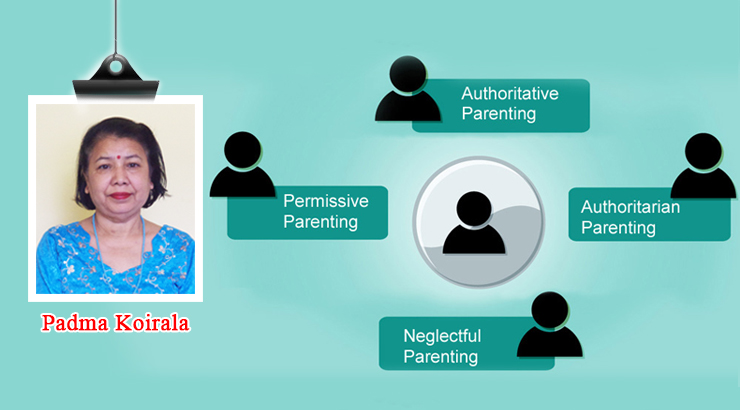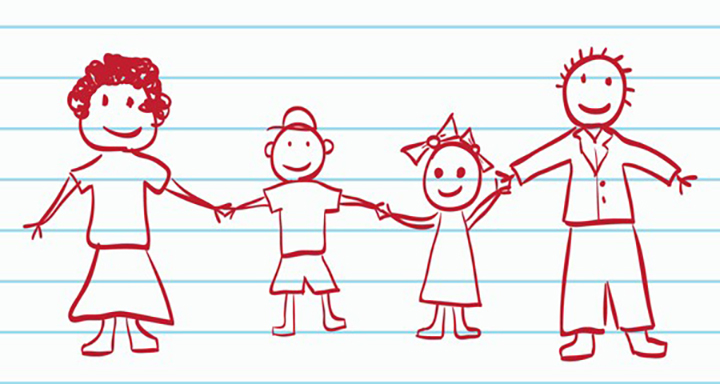
Self-esteem is explained as self-worth or self-respect which has an important role in the success of children in the future life. It influences the psychological development and well-being of children. It also alters and affects the mental health adjustment and academic achievement.. Maslow’s hierarchy of needs has categorized it as one of the basic needs of human beings.
The effect of low esteem may be temporary or permanent in some cases. In serious cases it can lead to grave problems such as depression, anorexia nervosa, delinquency, self-inflicted injuries and even suicide. Children with low self-esteem may lack in participation in extra-curricular activities as well. It may also lead children to make bad choices, fall into destructive relationships or fail to live up to their full potential.
Self-esteem is changeable and is developed during the childhood. Healthy self-esteem in children leads to signs such as confidence, ability to say no, positive outlook, ability to see strength and weakness and accept them, negative experience having no impact in overall perspective and ability to express your needs.
Children who have low self-esteem also have marked signs. Low self-esteem in children have signs such as negative outlook, lack of confidence, inability to express one’s needs, focus on one’s weakness, feeling of shame, depression or anxiety, belief that other are better than you, trouble accepting positive feedback and fear of failure.
Parenting style can have impact on the development of self-esteem of children. Generally there are four different types of parenting styles. They are authoritarian, permissive, neglecting and authoritative. Though authoritative parents’ styles raise their children to become happy, healthy, self-sufficient and successful adults, they have different parenting style.

1. The Authoritarian Parenting Style
Authoritarian parents are the parents who have the view that “children should be seen but not heard”. There is no room for discussion, choices or questions. They don’t feel the necessity to explain the rules or reasons. Authoritarian parents have the strong need to be in control all the ties and provide little freedom to their children. They want their children to have a high level of achievement but are not careful to know their children’s emotional needs. Their communication level with their children is low and they focus on controlling them. They have strict rules and punish the children if they don’t follow these rules.
Authoritarianism has some benefits. Their children are obedient and responsible citizens. They are efficient, capable and productive, but they lack self-discipline. They have poor communication and social skills and often find it difficult to make decisions. They feel that their feelings thought and opinions are unimportant. They are also very submissive. Authoritarian parents suppress a child’s creativity and intellect growth.
This type of parenting style has been linked to low self-esteem in children to low self-esteem in children who are very poor in leadership skills. The children of such parents also imitate their parents and seek to control others with demands and aggression.
2. The Permissive Parenting Style
Permissive parents make few demands on their children. They have lower expectations for self-control and maturity. Such parents rarely discipline their children. They don’t like to confront their children and let their children regulate their behavior. Such parents may lose control to the children.
Permissive parents are very loving and the children are the centre of their life. They befriend their children and do everything for them. They love their children unconditionally. They don’t set limits of behavior and don’t give guidelines.
The children who are raised with permissive parenting style tend to feel insecure and are very dependent. They don’t get direction and routine as a child, so they have difficulty approaching the world with confidence. They lack the sense of responsibility and remain immature in the thinking. This leads to trouble and poor school performance.
Such children try to get everything in their own way. They lack self-control. They can’t follow the world in a sociable way. They don’t have the chance of learning valuable coping skills that will help them in future. The children are not raised with the proper level of self-esteem. It can harm their personality.
3. The Neglecting Parenting Style
Neglecting parents put very few demands on children. They dismiss and neglect their children. They fulfill their physical need but don’t involve in their children’s lives. These parents have no expectations from the children and are very distant emotionally. Though these parents love their children they have a sense of problems in their life. They are often experiencing financial emotional or social stress. Some may be suffering from depression.
Children of such parents find it hard to make attachments to people later in life. The behavior pattern of their parents is set in their life as well and they also keep on repeating the same pattern with their children as well. The children of such parents feel that they are not important and that their parents don’t care for them. Their school performance is poor and they have poor social skills. The children are more likely to be aggressive and have behavioral problems. They don’t like the people with authority and have struggle with them.
The children of such parents have low self-esteem which can low self-esteem which can later have impact on their occupational achievement.
4. The Authoritative Parenting Style
This type of parenting is very responsive as well as demanding. They allow enough freedom of expression but are assertive enough to maintain authority and self-control. Mature behavior is expected from the children and these parents try not to punish the children.
Authoritative parents believe in developing a chose and loving relationship a close and loving relationship with their children but they also maintain a high level of expectation. The rules in such houses are clear, age appropriate and fair. They have consistent behavior. Such parents communicate with their children and believe in bonding with them. They listen to their children but parents make the final decision. Researches have shown that authoritative parents have the children with higher level of self-esteem.
Conclusion
Every child is unique and has to be handled with care while raising them. How you are raised can have impact on the adjustment to your future life. So knowledge of different parenting style can help a parent and the child as well. We must do what we can to make the child happy and sociable. The child should be reasonable, independent, have appropriate behavior and have decision making ability as well which can make him a responsible citizen.










